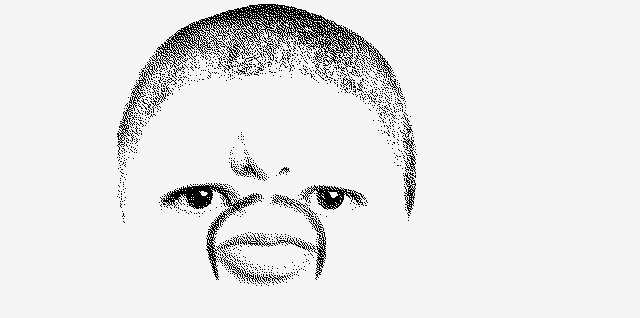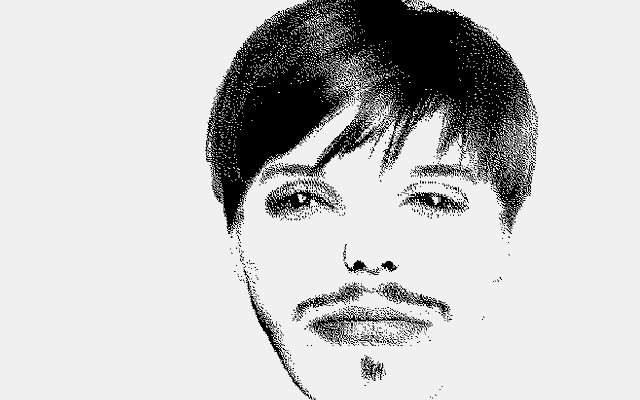
Being a literate and angsty teenager has its benefits. For one, if you’re as pretentious as I was you will see yourself as a writer, poet and deliverer of truth, and learn touch typing while you’re smoking pipe and pounding on a typewriter.
Helping my mom to move the other day, I found my old texts in an envelope – writings for the learned scrawled on it – and tried to recall what it was that I though so important. (And why was I such a pompous douche?) I remember having very strong opinions on religion and politics, and the usual teenage frustrations with sex and violence, but I don’t remember why I thought them so important. Who did I think I was back then and where did I see myself heading?
After a while you cement your image, your convictions and personality, spending a ridiculous amount of time justifying them and surrounding yourself with people who fit them. Along the way you change bit by bit, all the while telling yourself that you’re the same person and fully justified to do these changes to yourself even in the face of past ideals. “Never work for the state” becomes “unless it’s really interesting,” “I’m a nice and just person” changes your definition of “nice” and “just” as you improvise a life together.
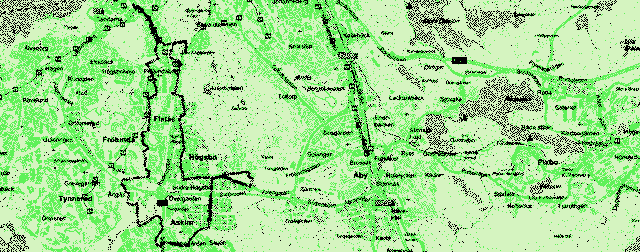
All of this is a roundabout way of saying that I ran 21 kilometers the other day and it got me thinking. One year ago I would only stop smoking long enough for the asthma attack to pass. Now I’m jogging, biking, and doing pushups because I feel like it. I don’t know what this means, and I don’t have a specific goal with the exercises, but it seems something has changed.
Fitness and body ideals seem like secondery issues. The interesting part of these changes is looking for what remains the same. How far does the idea that you become what you do extend? Judith Butlers suggestions regarding performativity seems to apply here, but is there something apart from the performace? What is the impetus of our continuous performance?
Do we just adopt habits and internalise them well enough to call it a personlity?
Meeting my childhood friend Albrecht the other day he commented that he saw no fundamental change; Whenever I decide to do something I overdo it, and this pulseclock–wearing version of myself is just a variation on a theme. So there maybe is consistency, that might be personality.
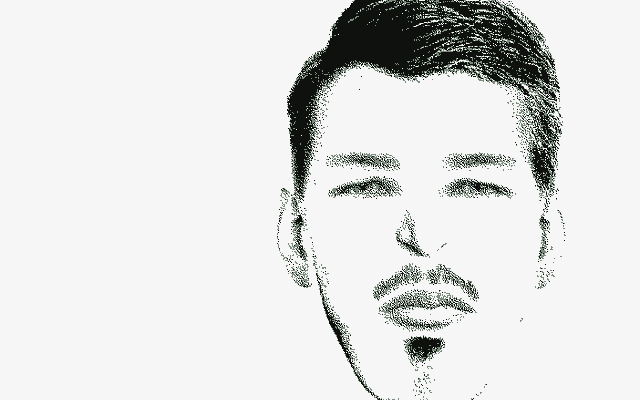
Those who met me for the first time when I’d just gotten the moustache know me as someone who takes pride in facial hair. My former students might recall a stammering slideshow and those who saw my MFA presentation still ask about lockpicking two years later.
Personal DNA is an almost broken website which allows you to do a personality test and then lets your friends do the same test on you. It shows the correlation between your self-image and what your friends think your self-image is. I filled it out for Anna and a few others and got a 70-80% match. When others filled out for me, the correlation was 40% or less. On the face of it I agree to 40% with my friends about who I am.
It might be all narcissism, but it’s Nacissus with Alzheimer’s: Wait, who’s that dude and why is he doing pushups?
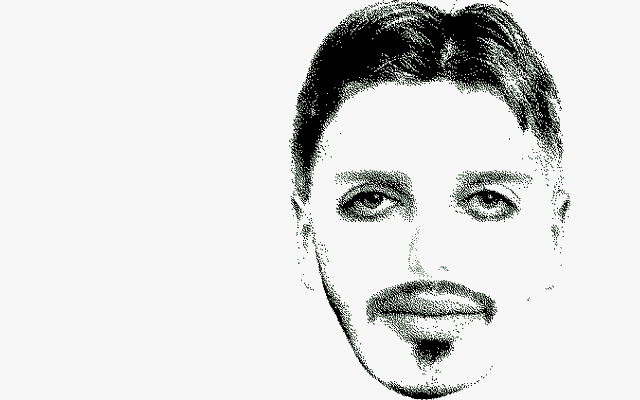
The above images are portraits of me made from memory by Tobias, Jan and Anna using Flashface. If you’d care to do one of me without cheating, send me a screen dump and I’ll post it here. Also, try it on your friends and family, it’s harder than it might seem. Do your parents know what you look like?
–––––––––––––––––––––––––––––––––––––––––– Updates ––––––––––––––––––––––––––––––––––––––––––
Ian Campbell sent his version:
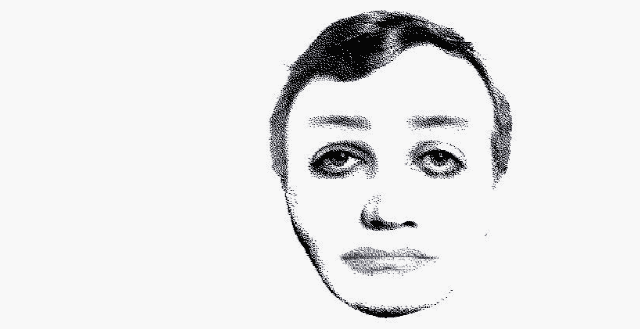
Jonas Isfält showcases an uncanny sense of humour with his contribution:
